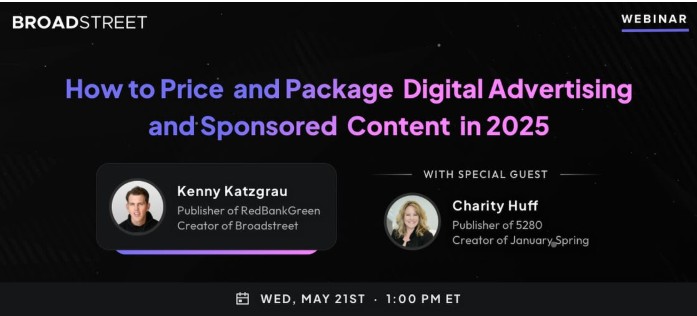Tough cookies: Google is keeping cookies, so now what?
Aug 15, 2024
MARK MCCORMICK
The Magazine Manager
All that planning and spending.
All that worrying and reevaluating.
All of it, and for what? To keep photographers who specialize in capturing laptops and baked goods in business?
Ever since Google first announced in 2020 that they’d be killing off third-party cookies, those tiny bits of data-collecting code that tracked user activity and helped customize Chrome browsing experiences, publishers and advertisers have been preparing for the looming cookieless future. And as the tech company rolled out initiatives like Privacy Sandbox while issuing continuous stays of execution over the years, companies responded by paying attention to — and lots of money for — alternative plans. Keeping up with the potential seismic shifts and the possible salvaging solutions was a full-time focus for publishers, advertisers, tech leaders, industry experts, bloggers, and those (like me) who’ve long been dead-center in the eye of that Venn diagram storm … and on Monday, Google said nevermind.
“Instead of deprecating third-party cookies,” wrote Privacy Sandbox’s VP Anthony Chavez, “we would introduce a new experience in Chrome that lets people make an informed choice that applies across their web browsing, and they’d be able to adjust that choice at any time. We’re discussing this new path with regulators, and will engage with the industry as we roll this out.”
And just like that, the Big Tent seemed to deflate all around us, leaving us to shake off years of Stockholm Syndrome from the circus that ensued and collectively ask, “What now?”
As far as taking a temperature of various rooms, MediaPost found reactions amongst ad execs ranging from relief to “downright angry.”
The U.K.’s Information Commissioner’s Office, a data regulator whose cookie-depreciating and privacy-preservation concerns were shared by the U.K.’s Competition and Markets Authority as it looked into Privacy Sandbox, said it was disappointed in Google’s announcement as it had “been our view that blocking third party cookies would be a positive step for consumers.” For groups like The Movement for an Open Web, which The Verge points out filed the CMA complaint to block Privacy Sandbox, the latest announcement is a “clear admission by Google that their plan to enclose the open web has failed.”
“We’ve long called for Privacy Sandbox to be allowed to compete on its merits,” says James Rosewell, co-founder of The Movement for an Open Web. “If advertisers prefer its approach, and consumers value the alleged privacy benefits, then it will be universally adopted. What wasn’t acceptable was for a solution like this to be forced on the market whilst removing any alternative choices.”
In addition to regulatory resistance, Privacy Sandbox had seen other roadblocks over the years, with Marketing Brew rehashing the early reports that publishers could lose between 30% and 60% of their revenue without cookies. (“In announcing the (apparent) survival of cookies, Google pushed back on those reports,” Marketing Brew’s Ryan Barwick writes, “claiming in a separate note that in its own tests, Ad Manager publishers saw a revenue drop of 20% while revenue for AdSense publishers dropped by 18%. That’s an improvement over a study from 2019, which showed an average revenue loss of 52% for top Ad Manager publishers, the company said.”)
Ultimately, as Martech says, the time and money spent on Privacy Sandbox went nowhere, and Google’s interest in preserving ad revenue won out. “That’s why Google wanted it both ways — to satisfy privacy advocates while still offering workable options for advertisers,” MarTech’s Kim Davis writes. “Over the course of several years, Google succeeded in disappointing both sides, with regulators questioning whether Google was truly protecting user privacy while IAB Tech Lab found resoundingly that the Privacy Sandbox alternatives to cookies were actually unworkable.”
So what does that mean for actual users moving forward? For The Verge’s Richard Lawler, asking Chrome users to choose could end up working like Apple’s opt-in App Tracking Transparency (ATT), which doesn’t reach nearly as many users and “reportedly cost social media platforms nearly $10 billion when it rolled out in 2021.”
“Putting a prompt in front of Chrome’s billions of users wouldn’t be as drastic as changing the default entirely, but it still might cut the number of users allowing third-party tracking significantly,” Lawler writes. And as EMARKETER’s Evelyn Mitchell-Wolf writes, “the extent to which consumers opt out of sharing third-party cookies (if that is what Google is proposing) depends largely on the prominence of the privacy call-to-action.”
So, was this long arduous journey all for naught? Not if we consider what value the current third-party cookie could provide … and especially not with the reconsidered value of all the other data options now more prominently at our fingertips, particularly with programmatic.
“Even with Google’s new direction, third-party cookies are unlikely to remain the primary tracking method on Chrome; advertisers should still prepare for the post-cookie future,” writes EMARKETER’s Daniel Konstantinovic and Jeremy Goldman.
There’s an old saying that it’s not the destination — but, instead, the journey — that’s the most rewarding part. Perhaps, to paraphrase a more-modern meme, the real treasure was the first-party, privacy-prioritizing friends we made along the way.
The Magazine Manager is a web-based CRM solution designed to help digital and print publishers manage sales, production, and marketing in a centralized platform. Visit https://www.magazinemanager.com/









